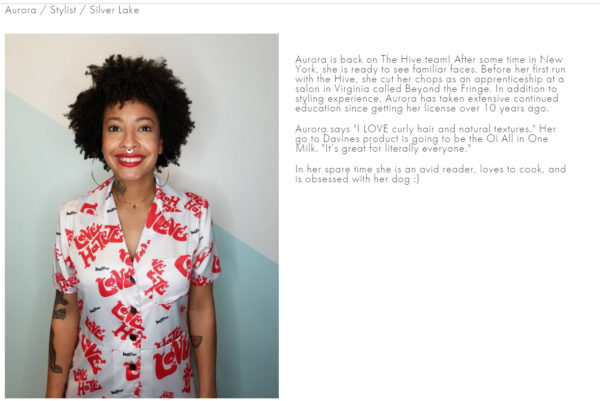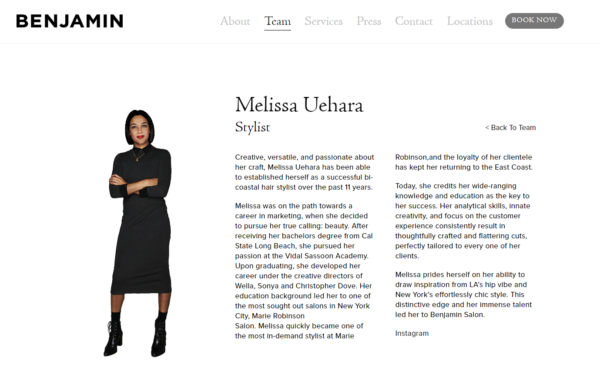Beyond "Hair Stylist": Exploring The Evolving Lexicon Of Hair Professionals In 2025
Beyond "Hair Stylist": Exploring the Evolving Lexicon of Hair Professionals in 2025
Related Articles: Beyond "Hair Stylist": Exploring the Evolving Lexicon of Hair Professionals in 2025
Introduction
In this auspicious occasion, we are delighted to delve into the intriguing topic related to Beyond "Hair Stylist": Exploring the Evolving Lexicon of Hair Professionals in 2025. Let’s weave interesting information and offer fresh perspectives to the readers.
Table of Content
Beyond "Hair Stylist": Exploring the Evolving Lexicon of Hair Professionals in 2025
The year is 2025. The beauty industry has undergone a seismic shift, driven by technological advancements, evolving consumer demands, and a heightened awareness of sustainability and inclusivity. While "hair stylist" remains a common term, it’s no longer sufficient to encapsulate the multifaceted roles and specialized skills within the profession. The need for a more nuanced vocabulary has emerged, reflecting the increasing complexity and sophistication of hair care and styling. This article explores the potential replacements for "hair stylist" in 2025, examining the trends and specializations that are shaping the language of the industry.
The Rise of Specialization: Beyond the One-Size-Fits-All Approach
The traditional "hair stylist" often encompassed a broad range of services, from cutting and coloring to styling and treatments. In 2025, however, hyper-specialization is the norm. Clients are increasingly seeking out professionals with deep expertise in specific areas, leading to a diversification of titles and a more precise way to describe their skills. This trend is driven by several factors:
- Technological Advancements: New technologies, such as AI-powered hair analysis tools, 3D hair simulation software, and advanced coloring techniques, require specialized training and expertise. Professionals who master these technologies will need titles that reflect their proficiency.
- Increased Consumer Awareness: Clients are more informed than ever before about hair health, different hair types, and the latest trends. They seek professionals who can cater to their specific needs and concerns, demanding a higher level of specialization.
- Sustainability and Ethical Considerations: The growing emphasis on sustainable practices and ethical sourcing of products necessitates a new generation of professionals who are knowledgeable about eco-friendly products and techniques. This specialization demands new vocabulary to reflect their commitment.
- Inclusivity and Diversity: The beauty industry is increasingly focused on inclusivity and representation. Professionals specializing in diverse hair textures, ethnicities, and hair types require titles that accurately reflect their unique expertise.
Potential Replacements for "Hair Stylist" in 2025:
The following are some potential replacements for "hair stylist" in 2025, categorized by specialization:
1. Hair Architects/Designers: This title emphasizes the creative and artistic aspects of the profession. These professionals are highly skilled in creating bespoke hairstyles that complement the client’s features and personal style. They often utilize advanced cutting techniques and styling methods to achieve a unique and personalized look. This title resonates with clients seeking a highly artistic and individualized approach.
2. Trichologists: This title denotes a professional with advanced knowledge of the scalp and hair health. Trichologists diagnose and treat hair and scalp conditions, often recommending customized treatments and products to improve hair health. They are increasingly important in a world focused on holistic well-being.
3. Colorists/Color Architects: Coloring hair has become an art form in itself. Colorists/Color Architects possess an exceptional understanding of color theory, blending techniques, and the chemical properties of hair dyes. They can create complex and nuanced color transformations, utilizing advanced techniques like balayage, ombre, and airtouch. This specialization demands a title that reflects the artistry and technical skill involved.
4. Texture Specialists: With a growing emphasis on inclusivity, professionals specializing in diverse hair textures are essential. These specialists possess in-depth knowledge of different hair types, from straight to curly, coily, and kinky, and are skilled in providing customized care and styling for each texture. This title emphasizes expertise and sensitivity towards diverse hair needs.
5. Hair Restoration Specialists: This title is for professionals specializing in hair loss treatments and restoration techniques. They may utilize non-surgical methods, such as scalp treatments and hair growth products, or work alongside medical professionals for more advanced procedures. This specialization demands a title that reflects its medical and scientific aspects.
6. Sustainable Hair Professionals: This title reflects a growing concern for environmental sustainability and ethical sourcing. These professionals utilize eco-friendly products, minimize waste, and prioritize sustainable practices in their work. This specialization is becoming increasingly important to environmentally conscious clients.
7. Digital Hair Stylists/Virtual Hair Consultants: With the rise of virtual consultations and AI-powered tools, digital hair stylists utilize technology to assist clients in choosing hairstyles, colors, and treatments. They may create virtual hairstyles using 3D simulation software or provide online consultations through video conferencing.
8. Extension Specialists: This title signifies expertise in hair extensions, including various application methods, maintenance, and styling. They are skilled in selecting the right type of extensions and creating natural-looking results.
9. Braiding Specialists: This specialization caters to the growing demand for intricate and diverse braiding styles. These professionals possess exceptional dexterity and creativity, mastering various braiding techniques and creating unique and artistic hairstyles.
10. Men’s Grooming Specialists: While traditionally encompassed under "hair stylist," men’s grooming is increasingly recognized as a distinct specialization, requiring expertise in beard styling, shaving techniques, and men’s haircuts.
The Future of Language in the Hair Industry:
The evolution of the hair industry necessitates a corresponding evolution in its language. The titles listed above are just a few examples of the potential replacements for "hair stylist" in 2025. As the industry continues to evolve, we can expect even more specialized titles to emerge, reflecting the growing complexity and diversity of the profession. This increased specificity will benefit both professionals and clients, fostering clearer communication and ensuring that clients receive the most appropriate and effective services. The future of hair care is not just about cutting and styling; it’s about holistic well-being, technological innovation, sustainability, and inclusivity. The language we use must reflect this transformative shift. The days of the generic "hair stylist" are numbered; the future belongs to the specialists, the artists, the scientists, and the innovators who are shaping the next generation of hair care. The precise and descriptive titles of tomorrow will accurately reflect the multifaceted expertise and dedication of these professionals.







![]()
Closure
Thus, we hope this article has provided valuable insights into Beyond "Hair Stylist": Exploring the Evolving Lexicon of Hair Professionals in 2025. We thank you for taking the time to read this article. See you in our next article!
